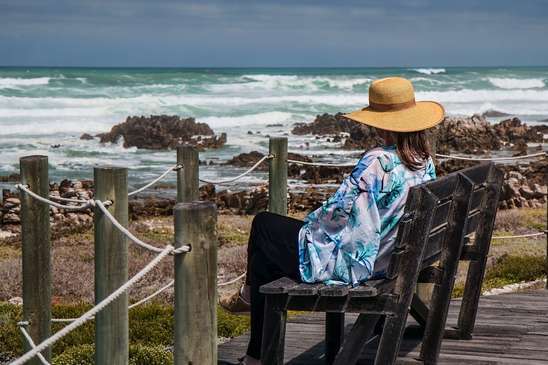
Coping with the Wobblies
Sunday, September 18, 2016
(SNN) Belonging to an elite group is only fun if it was one you aspired to, like giving a hundred speeches and becoming a Distinguished Toastmaster. During that time I would get the “wobblies” almost weekly. “What’s the worst thing that can happen?” I’d ask myself, and then think: “I humiliate myself. I can survive that.” And I did, more than once.
My brother and I, having inherited a rare genetic disease, are in an elite group where specialists view us as guinea pigs. Next week John, who is a bachelor, and I are going to Vancouver so he can have a landmark orthopedic surgery. As much as I’ve been trying to keep my mind occupied elsewhere, the wobblies are getting a hold of me. John has the bigger job of keeping his fears in check.
The most exquisite pleasure in the practice of medicine comes from nudging a layman in the direction of terror, then bringing him back to safety again.” – Kurt Vonnegut
The worry over the worst thing that can happen in this situation is always at the back of my mind. What was at one time a serious comment has become wry medical humour, and our mother was fond of repeating it for its dark element: “The operation was a success, but the patient died.” I expect John and I will be joking around a lot in the hours just before his surgery. He has a couple of wickedly funny accents.
Another fear that has crossed my mind is, what if John chickens out at the last minute? No, I tell myself, that won’t happen. John’s feet have been giving him pain for decades. He’s always been a risk-taker and he’s willing to take a chance on this solution to the problem. Plus, as he says, he’s got one painful ordeal and long recovery under his belt already. When he was in his 20’s John was in a motorcycle accident with a car that pulled out right in front of him. He broadsided it, and in landing on the road telescoped both of his forearms. One had to be plated to make up for the lost piece of bone.
The next day, two of the attending RCMP officers visited John in hospital to tell him how lucky he was to have survived the accident. They told him that men on motorcycles in a front-end collision bleed out when their genitals get caught on the handlebars. For him to have been launched clear of the bike and over the car, they said, he must have stood up on the pegs before the moment of impact. Both elements of what the officers related – the danger and the way to avoid it – were news to John. He remembered seeing the woman pull out as he approached, and then the next thing was the ambulance attendants. He had no knowledge of the action that saved his life, or where that idea came from, but it’s clear it was the best thing he could have done.
Feeling somewhat reassured that John will get through this ordeal as he did that one, I’m now worried about the surgeon. There is a saying in the military: “No plan survives first contact with the enemy.” Of course, as patients we’re not the enemy, but the same principle holds. There is a plan of attack, but patients, like the enemy, may not respond in the ways the surgeon thinks they will. The patient gets a vote, it may be an unconscious one, and it may cause an unpleasant surprise for the surgeon.
Not so long ago, I experienced that same fortuitous unconscious action that John did. It was the morning I was to leave the hospital after hip replacement surgery. In the process of getting back into bed from a trip to the washroom, I rolled unnecessarily onto my incision, with the result that the bed and my flannel nightgown were suddenly soaked with watery, bloody liquid. The two shocked nurses immediately paged the surgeon. While initially aghast at what I’d done, he soon saw that, had I not burst the large pocket of fluid around the new joint, there was the danger of it becoming infected. This would have necessitated the removal and replacement of the artificial hip. In the surgeon’s words, “That was the best thing you could have done.”
To science, which once ascribed to the ideal of replicating an experiment before rushing to write a paper on the success, my brother’s situation is a good one. In six months the world-renowned foot and ankle specialist plans to replicate his surgical experiment on the other foot. This is a woohoo for science, but of course not so great for John.
In pharmacology there is the instruction: Take as needed. In the days ahead, I plan to use this paraphrase of Julian of Norwich as needed: “All will be well, and every little thing will be well.”
Photo: CCO Public Domain. Source: Pixabay.
More Opinion News
-
Cork and the Geez Talk Oscars
Monday, February 27, 2017
The Old Coot & the Geezer analyze what went wrong and what went right at the Academy Awards this year, review the show, and recommend who should host next year. The duo are America's most respected fuddy-duddy film ...
-
Cork and the Geez Dish on the Golden Globes
Tuesday, January 24, 2017
(SNN) The Old Coot and the Geezer, affected no doubt by the rainy weather in Southern California turn grumpy as they analyze the Golden Globes and show what they mean--mostly good food for the media. Will Hollywood ...
-
Revisiting "Two-a-Days" with One Small Difference
Thursday, October 06, 2016
(SNN) For four years of high school and one in college, I would spend a couple of weeks during the dog days of August involved in what was known as "Two-a-days." Those, as any current or former football player ...
-
Experimental Turkeys & Murphy's Law
Friday, September 16, 2016
(SNN) It is a paradox of science that before any breakthrough there is often a f’ed-up earlier stage. Out of this f’ed-stage have come some turkeys – turkeys that crossed the road to find something of value on the ...
-
Adventures in Eating
Sunday, August 21, 2016
(SNN) Some food combinations reside in the collective unconscious – and then there are those that shouldn’t exist at all. That special is a lottery. Visible from my apartment is a restaurant that has been struggling ...
-
No More Miscarriage Taboo
Friday, June 24, 2016
(SNN) I got a tattoo recently to honor the life and death of my daughter. The potential of her. The possibility of her. The scarred grief of her that tore up my heart. The fact that she was not born alive did not ...
-
Since the Pulse Stopped
Tuesday, June 21, 2016
Since 'the Pulse stopped,' I've been thinking a few things. (SNN) The other day 49 human beings were murdered, and 53 more were injured in an attempt to murder them, simply for being in a "Gay" nightclub called ...
-
Fall Down, Go Boom
Tuesday, March 22, 2016
(SNN) My doctor has asked me to not fall down. I’ve attempted to honor his request, but it's easier said than done. Staying upright cannot be taken for granted if, like me, you own a fused ankle, Silly Putty knee ...
-
Character Actors: Not Just In It to Win It
Friday, January 29, 2016
(SNN) The death this week of actor Abe Vigoda at 94 reminds us that there are degrees of success of Hollywood, that fame can come after thirty years of toiling in obscurity, and that a great actor is a great actor ...
-
Shocking Late Nite Rumor Thingy
Saturday, November 07, 2015
(SNN) I’ve decided to start a show business rumor. Just me. All by myself, no sources, no late night phone calls from the participants. No leaked information from insiders. If it happens to come true, remember, ...

